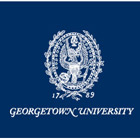- News and articles
- Find usIDP AustraliaIDP BahrainIDP BangladeshIDP CambodiaIDP CanadaIDP ChinaIDP EgyptIDP GhanaIDP Hong KongIDP IndiaIDP IndonesiaIDP IranIDP JordanIDP KenyaIDP KoreaIDP KuwaitIDP LebanonIDP MalaysiaIDP MauritiusIDP Middle EastIDP NepalIDP New ZealandIDP NigeriaIDP OmanIDP PakistanIDP PhilippinesIDP Saudi ArabiaIDP SingaporeIDP Sri LankaIDP Taiwan, ChinaIDP ThailandIDP TurkeyIDP UAEIDP VietnamIDP Corporate
- Social
- English
- Where we operate
- Courses
- Scholarships
- IELTS
- About IDP
- Student Essentials
- News and articles
- Find us
- Find us
- Find nearest IDP offices
- IDP Australia
- IDP Bahrain
- IDP Bangladesh
- IDP Cambodia
- IDP Canada
- IDP China
- IDP Egypt
- IDP Ghana
- IDP Hong Kong
- IDP India
- IDP Indonesia
- IDP Iran
- IDP Jordan
- IDP Kenya
- IDP Korea
- IDP Kuwait
- IDP Lebanon
- IDP Malaysia
- IDP Mauritius
- IDP Middle East
- IDP Nepal
- IDP New Zealand
- IDP Nigeria
- IDP Oman
- IDP Pakistan
- IDP Philippines
- IDP Saudi Arabia
- IDP Singapore
- IDP Sri Lanka
- IDP Taiwan, China
- IDP Thailand
- IDP Turkey
- IDP UAE
- IDP Vietnam
- IDP Corporate
- Social
- Language Switcher
- IDP Education /
- Colleges and Universities /
- United States /
- Georgetown University /
- Master of Science in Global...


Location
United States
Qualification
Masters Degree
Duration
18 Month(s)
Next intake
18 August 2025
Entry Score
7.0
IELTSCourse info
Combating infectious diseases requires a multi-prong approach that includes implementation of effective policies. The policy concentration emphasizes the development of knowledge and skills to understand, identify, and develop policies and related tools to deal with the infectious disease threat. Coursework will develop skills for policy analysis through a variety of methods and topics, such as review of domestic and international decision-making bodies, political theory, critical tools for analyses, case studies of policy-level interventions, and related areas like diplomacy, economics, and financing. Upon completion of the degree, students will be able to utilize key methodologies for policy analysis, develop policy options, and assess evidence for utility in supporting policy decisions. They will also recognize and address ethical issues in all areas of global infectious disease, including conduct of research, population interventions, and policy decisions. This concentration will support graduates advancement to jobs that require, or would benefit from, employees who are literate in the role of policy in infectious disease preparedness and response, and who can analyze and develop valuable policy approaches.
- Scholarships
- Internships
Course fees are indicative and should be used as a guide. to get an accurate price.
Duration: 18 Month(s)
| Intake | Location |
|---|---|
| Fall (August), 2025 | Washington |
| Fall (August), 2026 | Washington |
Entry requirements for Georgetown University
Statement of Purpose.
Official Transcripts (all prior institutions). Applicants are required to upload to the application system copies of official transcripts from all undergraduate and graduate institutions attended.
Official Recommendations. Three letters of recommendation are required.
Resume/C.V.
TOEFL: A minimum score of 550 (paper-based test) or 80 (iBT test) on the Test of English as a Foreign Language (TOEFL).
IELTS: A minimum score of 7.0 from the International English Language Testing System.
Application Deadline
The application deadline isn't available Speak to an IDP counsellor for more detailed information
Further information
If you aren't eligible for the above entry requirements, you might ant to explore pathway options at Georgetown University. If you want to find out more, speak to our counsellors.
THE World Ranking
201st / 1250
THE World RankingWhat our students think
We’ve haven’t received any reviews for this institution yet.
Recommended for you
- Graduate Certificate
- Montclair , United States
- Next intake:08/2025
- Entry Score: IELTS 6.5
- USD14969 (2025)
- THE World Ranking:98
- Masters Degree
- Atlanta , United States
- Next intake:08/2026
- Entry Score: IELTS 6.0
- USD31000 (2025)
- THE World Ranking:18
- Masters Degree
- New York , United States
- Next intake:09/2025
- Entry Score: IELTS 7.5
- USD71194 (2025)
- THE World Ranking:127
- Masters Degree
- Rochester , United States
- Next intake:05/2025
- Entry Score: IELTS 7.0
- USD51073 (2025)
- THE World Ranking:127
- Masters Degree
- Rochester , United States
- Next intake:05/2025
- Entry Score: IELTS 7.0
- USD51073 (2025)
- THE World Ranking:127
- Masters Degree
- Rochester , United States
- Next intake:05/2025
- Entry Score: IELTS 7.0
- USD49980 (2025)
- THE World Ranking:127
- Masters Degree
- Rochester , United States
- Next intake:05/2025
- Entry Score: IELTS 7.0
- USD55447 (2025)
- THE World Ranking:127
- Masters Degree
- Rochester , United States
- Next intake:05/2025
- Entry Score: IELTS 7.0
- USD49980 (2025)
Your action plan
Step 1
Shortlist your courses
Choose the best three courses you’re most likely to pursue.
Step 2
Check your eligibility
Get an instant in-principle offer for courses with the IDP FastLane tag.
Step 3
Apply through IDP Live
Fill out the form once and use it to apply to multiple courses.
How does IDP FastLane work?
With the FastLane 'Offer in Principle', you'll know in minutes if you'll be accepted!
Select an institution and course
Create your academic profile
Submit your application for an 'Offer in Principle'
Your chosen institution(s) will send you a decision in minutes!
Get ready to apply with an expert counsellor




